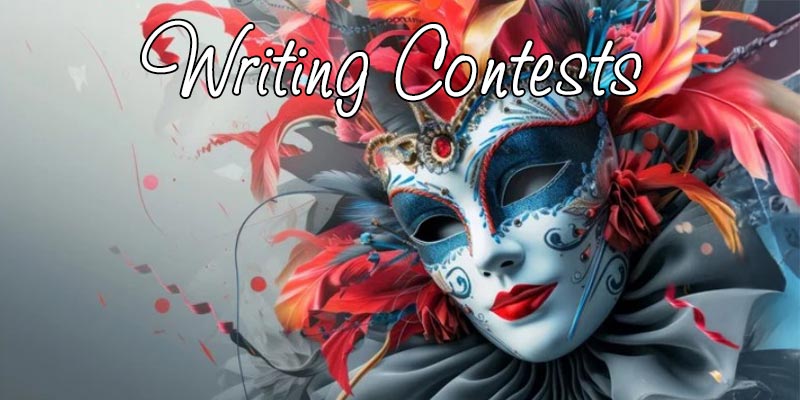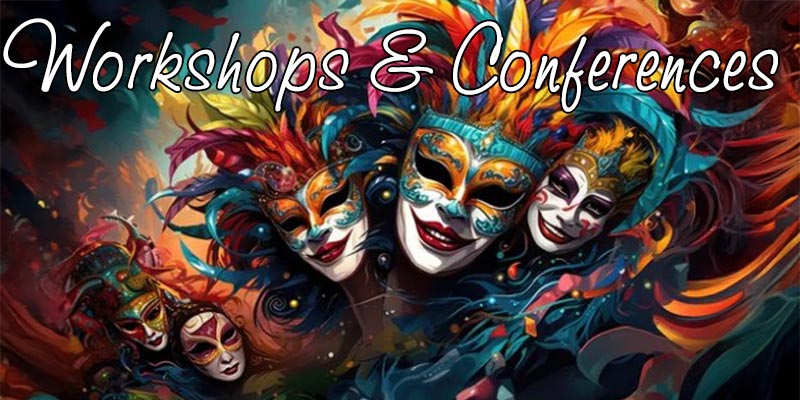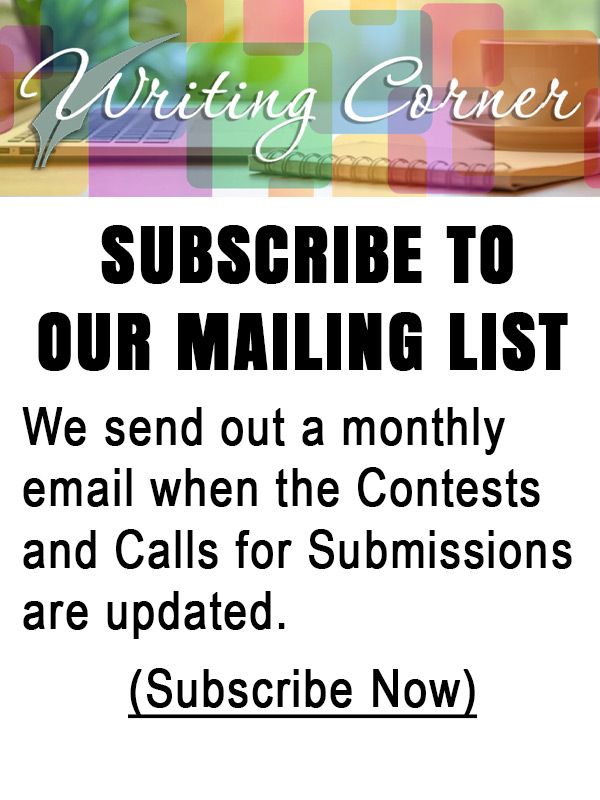
The site for writers of all genre, and the readers who love them. Find what you want to know.
Why E-Books?

by Chris Randall
With thousands of writers all competing to get the favorable eye of the traditional publisher, it is not surprising that the great majority fail to get into print. Trying to compose those few words which will grab the attention of the person sitting in the selector’s chair, can be about as fruitful as picking out a seven way accumulator at a race meeting. Yet we go through these motions time and again, never stopping to ask why we contribute so eagerly to the publisher’s seat of unreachable power. But you don’t need to be told this. You have probably already experienced it yourself.
While many authors might have heard of e-books, few have yet given them the attention they deserve. E-books are not just a passing gimmick. They are, beyond any measure of doubt, the future of publishing. It might seem, at this moment in their evolution, that they are a little troublesome and not quite the same as holding a printed book in your hands, but they should not be dismissed too readily. There will come a time when an e-book is the most common form of publishing and reading. That is the unstoppable nature of advancing technology. A few years ago, the engineer would have made all his calculations on a slide rule. Today you will be hard pressed to find such an outdated object, and many children will not even know what a slide rule is. Pocket calculators have out competed them. Likewise, e-books will eventually out compete the printed page.
If you decide to take the e-book road, you will not encounter the odds normally stacked against you. Far from placing your skills and talents at the mercy of another, you will meet the pure justice of the internet world. Your e-book will stand on its own merit, and succeed or fail accordingly. Well, almost. E-books are a relatively new concept and for that reason you will not immediately find a clamoring market to purchase them. But this will change as e-books become more popular. And in any event, what does it really matter? The cost of producing an e-book spans from very little to zero. Once it has been prepared in html format, either by yourself, or by the e-book publisher, it is ready for purchase by any who are interested. This presents an avenue of distribution, which, if nothing else, is a bonus for both the unpublished and published author alike.
Expressions of distaste have been reported by some writers who believe that, because books are more readily accepted for e-book publishing, the standard is lower than for books published traditionally. There is no sustainable evidence for this. After all, do you think your work is of poor quality? Of course not. And you are no different to any other frustrated writer who wishes to get their work seen. Because a book has not been accepted by a traditional publisher, is not evidence that the book has no merit. The very nature of traditional publishing dictates that only a very small percentage of writers will be published. Every printed book comes at a cost to the publisher, so they cannot afford to publish an unlimited number of books each year. This is not the case with e-books. The cost-effective nature, and the wide scope coverage of the internet, means that there are no such restraining limits.
How does the royalty on an e-book compare to a printed book? Printed books attract royalties for the author of anything between 10% and 20%. In contrast, an e-book will never pay out such low commissions. The author can always expect at least 50% of the cover price and often more.
The author will not need to wait for payment either. Payments will be made monthly in most cases, which compares favorably to the six months imposed by many traditional publishers. Another fear expressed by some looking to the e-book market, is the confidentiality factor. Here one has to be realistic. It has sometimes been asked, “How do I know my e-book won’t be given to someone else after a customer has purchased it?” The answer is that you don’t know. No more than you know that a printed book won’t be given to a friend to read after the purchaser has read it. In fact, the chances of several people reading a printed book for the single price paid for it, is probably far greater than for the e-book, for reasons that are obvious.
There are various ways of purchasing an e-book, but all follow a basic principle. If an e-book has to be paid for, it will be impossible to access it until the credit card transaction has been completed. Once the credit details have been approved, a thank you page is shown on the web site and from there the purchaser can either download the e-book to their computer, or they can obtain access to the html pages by way of a password. Either way, if the payment is not received, the book will not be accessible.
If the e-book is simply downloaded, then the chances are that the format is the same as when you set it up on your computer. By contrast, the book which can be read on the web site, has been set in html language and will undoubtedly be displayed in a more attractive manner. It will often contain a colored background and can, on occasion, include pictures and graphics. However, it should be noted that any inclusion of features that are beyond simple text might come at a cost that you will be asked to cover. This is not unreasonable. The e-book publisher has no guarantee that the book will sell and make a profit.
Payments for e-book sales are usually made monthly. When the transaction is completed, the credit for the sale will have gone into the web site owner’s credit account. Reputable credit card service providers will have set up a money back guarantee to the purchaser which can only be redeemed within a stated time period. Although this might seem like an easy option for e-book customers to buy a book, read it and redeem their money, the fact is that the great majority of people are straightforward and honest, so this occurs only rarely. It should never be considered as a deterrent to publishing an e-book. At the end of the month the web site owner will usually send you a statement by email which will show you whether or not any sales have been made. If necessary, a copy of the web site account will be made available also, so that you can check on the transactions throughout the month. These procedures will vary from one publisher to another, or might even be negotiated at the time of first publishing.
An important factor in the sale of e-books is the “packaging”. By packaging we mean “the way it is presented”. This presentation package comes under the heading of marketing. The successful sale of any product is relative to the manner in which it is marketed, and the author should have knowledge of this. It is in the author’s interests to describe the written work in as attractive a “package” as possible. If a prospective purchaser is going to buy a book where it is not possible to thumb through the pages first, then the sales pitch (the introduction) must make the customer want to buy. One way to do this is to take an appealing passage from the book and use it as the introduction, but because the author has the greatest knowledge of their own work, it should not be too difficult to explain it in an interesting way using your writer’s artistic flair.
As things are at present, the purchaser of an e-book will have several options for reading it. They can read it on screen at the web site, print it out from the web site to a desktop printer, or they can download (or copy and paste) it for reading/printing off line at a later time. This is what might be described as the troublesome aspect of e-books at present, depending on the views of the customer. But we need to be ever mindful of the nature of computer and internet technology. It advances much too fast for many of us to keep up with. So there must be a time in the near future when special e-book reading pads will be made available. Rather like a small book sized, hand-held, computer screen that will fit into the pocket or handbag. With the ever-decreasing size of memory packs it is already possible for such a device to hold a thousand or more e-books, either on CD-ROM or downloaded directly from the internet.
This is the inevitable future, not just for books, but for daily newspapers, magazines, subscription reports, and any other written work that can be supplied from the internet. It would be very unwise to write off e-books as an unworthy vehicle for your artistic writing. Soon it might be the only vehicle available.
AGENTS & EDITORS
- Agents: Knowing When To Hold One and When To Fold
- Copyright Primer, Know Your Rights
- Getting Offers from Multiple Literary Agents
- Landing An Agent Elements Of A Winning Query
- Literary Agents List
- Preditors and Editors
- Publishing, Writing Terms, Acronyms
- Tips for a Successful Editor Appointment
- Want More? Here’s How to Get It
- What NOT to Do When Beginning Your Novel
- Windup for the (Story) Pitch
- Write the Perfect Book Proposal
CALLS FOR SUBMISSIONS
![]()
CALLS FOR SUBMISSIONS MAIN PAGE
- 2026 FEB Calls for Submissions
- 2026 JAN Calls for Submissions
- 2025 DEC Calls for Submissions
- 2025 NOV Calls for Submissions
- 2025 OCT Calls for Submissions
- 2025 SEP Calls for Submission
- 2025 AUG Calls for Submission
- 2025 JUL Calls for Submission
- 2025 JUN Calls for Submission
- 2025 MAY Calls for Submission
- 2025 APR Calls for Submission
- 2025 MAR Calls for Submission
COMPUTER TIPS
- ASCII Characters
- Building Your Web Site and Doing It Right
- Don’t Be a Victim-Scams, Identity Theft, Urban Legends
- Don’t Spread Scams
- Free AI Tools That Can Be Used In Business Writing
- How to Annoy Your Website Visitors
- If Your Data Is Compromised
- Internet Safety: Guide to Keep Your Information Safe Online
- Knowing Your Target Audience
- Online Safety for Kids and Teens
- Stopping Viruses from Propagating Through Your Email
- The Top 10 Email Errors
- Word Processors Through Time: Before MS Word & Google Docs
GRAMMAR & FORMATTING
![]()
GRAMMAR & FORMATTING MAIN PAGE
- Achieving 250 Words / 25 Lines Per Page
- And Sammy, Too? Oh, No!
- Changing Double Hyphens to EM Dashes in Word
- Edit Easier
- High Hopes–Avoiding Common Mistakes
- Misused Words
- Navigating In Your Novel
- Proofreaders Marks
- Research Links
- Rules for Writers
- Slang and Jargon Souces
- Tightening Your Manuscript and Trimming the Word Count
INSPIRATION-& MOTIVATION
![]()
INSPIRATION & MOTIVATION MAIN PAGE
- A Dream Realized
- Beyond the Basics
- Dumb Little Writing Tricks That Work
- Finding Time to Write
- Five Ways to Promote Yourself
- How Not to Procrastinate
- How to Quit Writing and End up on the Bestseller Lists
- Ideas Escape Me
- Keeping an Idea Book
- Love to Write: Here Is How You Can Build Your Career
- Making Time for Self-Care While Running a Business
- Moving Up the Rejection Ladder
- Pop Quiz: Who Are You?
- Rules for Writers
- The 8 Habits of Highly Successful Young-Adult Fiction Authors
- The Art of Being Rejected–475 Words
- The Juggling Act
- The Literary Food Chain
- Various Types of Writing for Young Writers
- Why Article Writing Should Be A Part Of Your Career Development Strategy
- Write Better Naked
- Writer’s Conferences Do You Really Need To Attend?
- Writing By Moonlight
MARKETS & JOBS
- 35 Online Work Ideas to Earn Good Money Whilst Studying
- An Interview with Holly Ambrose
- Copyright Primer, Know Your Rights
- EBooks-Fears to Possibilities
- Finding Markets Fiction and Nonfiction
- Freelance Writing 101
- Getting Offers from Multiple Literary Agents
- How To Be a (Shiver) Reporter
- How To Market Your Book After You’ve Written It
- How to Write a Novel Synopsis
- Love to Write: Here Is How You Can Build Your Career
- Magazine Links
- Making Money As a Corporate Freelancer
- Market News–All Genres
- Need a Clip? Open a Newspaper
- Newspaper Writing Resources
- Path to Self-Publishing Success
- Publishing, Writing Terms, Acronyms
- Science & Science Fiction Writing Organizations
- Selling to Children’s Markets
- Submission Tracking
- Submitting to UK Markets
- Syndication 101
- To Specialize, or Not to Specialize?
- Ultimate Guide to Being a Freelancer 2025 Update
- What Are Your Chances of Getting Published?
- Why Article Writing Should Be A Part Of Your Career Development Strategy
- Why E-Books?
- Words That Pay-The Rewards Of Choosing Writing As A Job
- Write the Perfect Book Proposal
- Write Your Way to $1000 a Month
- Writing Groups List
- Youth Writing Markets
ONLINE SAFETY
PUBLISHING
- Agents: Knowing When To Hold One and When To Fold
- Copyright Primer, Know Your Rights
- Getting Offers from Multiple Literary Agents
- How To Market Your Book After You’ve Written It
- How to Write a Novel Synopsis
- Landing An Agent Elements Of A Winning Query
- Love to Write: Here Is How You Can Build Your Career
- Making Money As a Corporate Freelancer
- Navigating In Your Novel
- Path to Self-Publishing Success
- Publisher’s Websites
- Publishing, Writing Terms, Acronyms
- Rules for Writers
- Science & Science Fiction Writing Organizations
- Submission Tracking
- Syndication 101
- The Great Limbo Mystery Question
- Tightening Your Manuscript and Trimming the Word Count
- What Are Your Chances of Getting Published?
- Why Article Writing Should Be A Part Of Your Career Development Strategy
- Why E-Books?
- Write the Perfect Book Proposal
WORKSHOPS & CONFERENCES
WRITER'S LIFE
- A Dream Realized
- A Writers Dream-The Home Office
- Affirm All You Want
- Copyright Primer, Know Your Rights
- Finding Time to Write
- Finding Your Writing Compass: A Guide to Freelance Adventures
- How To Be a (Shiver) Reporter
- How To Write Your Own Press Releases
- Keep a Clipping File
- Keeping an Idea Book
- Love to Write: Here Is How You Can Build Your Career
- Making Time for Self-Care While Running a Business
- Mommy’s Muse
- Moving Mountains
- Mud Pies
- Pop Quiz: Who Are You?
- Teach Yourself to Write
- The 8 Habits of Highly Successful Young-Adult Fiction Authors
- The Art of Procrastination
- Various Types of Writing for Young Writers
- Working with a Critique Group
- Writer’s Conferences Do You Really Need To Attend?
- Writing Conferences-Educating and Inspiring
WRITING CONTESTS
![]()
ABOUT WRITING CONTESTS
- A Guide to Assessing Writing Contests
- Writer’s Conferences Do You Really Need To Attend?
- Writing Groups List
- 2026 FEB Writing Contests
- 2026 JAN Writing Contests
- 2025 DEC Writing Contests
- 2025 NOV Writing Contests
- 2025 OCT Writing Contests
- 2025 SEP Writing Contests
- 2025 AUG Writing Contests
- 2025 JUL Writing Contests
- 2025 JUN Writing Contests
- 2025 MAY Writing Contests
- 2025 APR Writing Contests
- 2025 MAR Writing Contests
WRITING TOOLS & APPS
![]()
WRITING TOOLS & APPS MAIN PAGE
- And Sammy, Too? Oh, No!
- Beyond the Basics
- Changing Double Hyphens to EM Dashes in Word
- Dumb Little Writing Tricks That Work
- Finding Your Writing Compass: A Guide to Freelance Adventures
- Free AI Tools That Can Be Used In Business Writing
- Helpful Books
- High Hopes–Avoiding Common Mistakes
- Ideas Escape Me
- Knowing Your Target Audience
- Magazine Links
- Misused Words
- Path to Self-Publishing Success
- Pop Quiz: Who Are You?
- Reconsider Hand Writing
- Research Links
- Slang and Jargon Souces
- The 8 Habits of Highly Successful Young-Adult Fiction Authors
- Unblocking Your Muze
- Various Types of Writing for Young Writers
- What NOT to Do When Beginning Your Novel
- Why Article Writing Should Be A Part Of Your Career Development Strategy
- Word Processors Through Time: Before MS Word & Google Docs
- Working with a Critique Group
- Writing Groups List
- You Can Write A Short Story: Part 1 The Story Idea
- You Can Write A Short Story: Part 2 The Meat of the Story
- You Can Write A Short Story: Part 3 The Climax





